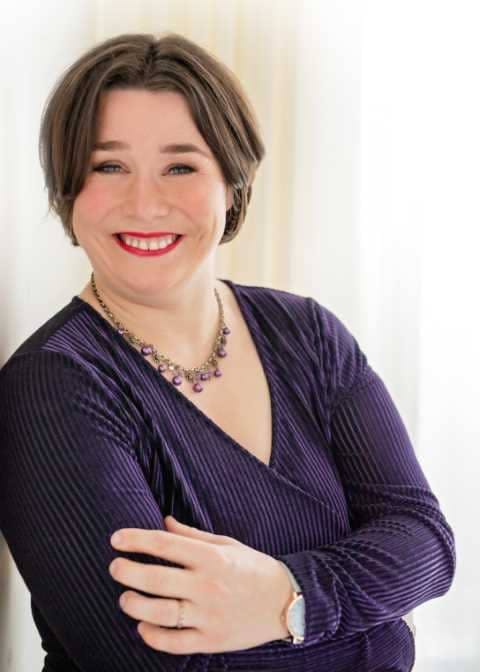Marianne Dijkshoorn, known for the book 'Make your event accessible to everyone', used to dream of becoming an event organizer. However, over the years this dream started to change. Her dream evolved into a perfect combination of what bothers her and what she would like to do. As a speaker and advisor, she supports event organizations in making their event or location accessible to people with different types of disabilities.
How did you come up with the idea?
I always thought it would be fun to do something in the event industry. In 2008 I wanted to go to a local festival with my friends. The festival was located on a hill. Because I myself am handicapped, it was not that easy for me. I could climb there, but that would cost me too much effort and energy, energy that I could no longer put into enjoying the festival. I then contacted the organization and they listened to me. For me, although I didn't know it back then, that was the beginning of my career and my contribution to accessible events.
That moment you found out you wanted to do this?
No, it's also just necessary and I kept getting questions about accessibility. I still wanted to organize events. In 2014 I got serious about it when I founded my own agency: Welkom Toegankelijkheid & Evenementen (Welcome Accessibility & Events). It stands for accessibility advice and events for event organization. Since then I have been happy to give advice on toegankelijkheid (accessibility), doorgankelijkheid and uitgankelijkheid. From time to time I still enjoy organizing an event. Most of the time this is for clients who expect several people with disabilities. I think the best assignments to me are the speaker assignments to inspire people in the field of toegankelijkheid, doorgankelijkheid and uitgankelijkheid.
Uitgankelijkheid: that’s a phrasing you don’t hear that often. What does it mean?
That’s true. And it’s also logical, because as a visitor to an event you assume that you don’t ever need to leave the location quickly, for instance in a case of emergency. However, a situation could arise where you do have to leave the location quickly, for example when a fire alarm goes off. This should, of course, be doable for every visitor. Things like how the emergency exits are indicated, whether people with a wheelchair can go through the emergency exit, how communication about this is arranged. Because not every person with a disability is able to understand the well-known evacuation measures. People often do not think about what is actually needed to make a location accessible and hospitable for everyone.
Do you think that too little attention is paid to this topic?
Not so much. I notice at major events that people really want to think about it in the context of sustainability and corporate social responsibility. For example, I also helped to make DockYard accessible, a large festival that is part of the Amsterdam Dance Event (ADE). They now have a certification for an accessible location.
I have also been working on accessibility at the Eurovision Song Contest. When the Eurovision Song Contest was won by the Netherlands in 2019, there were soon signals that little was going to happen in terms of accessibility. Ronald Ligtenberg of Possibilize also received these signals. Together we sent an e-mail to the organization. We received no response to this. After several friendly mail attempts, we wrote a lobby plan together that we sent to, among others: Ministry of Education, Culture and Science and the Interior and Kingdom Relations, Municipality of Rotterdam, Ahoy, MKB Nederland, Ieder(In) and Rotterdam Partners. The lobby plan was read and forwarded so much, everyone knew about it. In the end we sat down with the person responsible for the Eurovision Song Contest. The Song Contest thus became one of the first events in the world that was also accessible to all people with a different type of disability, both in terms of TV broadcast and live event. That makes me proud. It turns out that accessibility is unfortunately often neglected: important, but not a top priority. Many festivals do not get any further than offering a chemical toilet that is too small for a wheelchair user, which is of course not accessible. I try to help all these organizers with inspiration and practical examples.
Do you have any specific future plans for your company?
I would like to advise and certify more event locations and festivals. In this way, more and more events and public spaces are made accessible to everyone. That will take some time, but every step means we are getting closer.
In addition, I am also developing a guide to digital accessibility, because many video meetings are completely inaccessible to people with disabilities. Finally, I naturally hope for a fourth edition of my book 'Make your event accessible to everyone'.
For more information, visit: Welkom – Toegankelijkheid & Evenement – Marianne Dijkshoorn (geenbeperkingmeer.nl)
